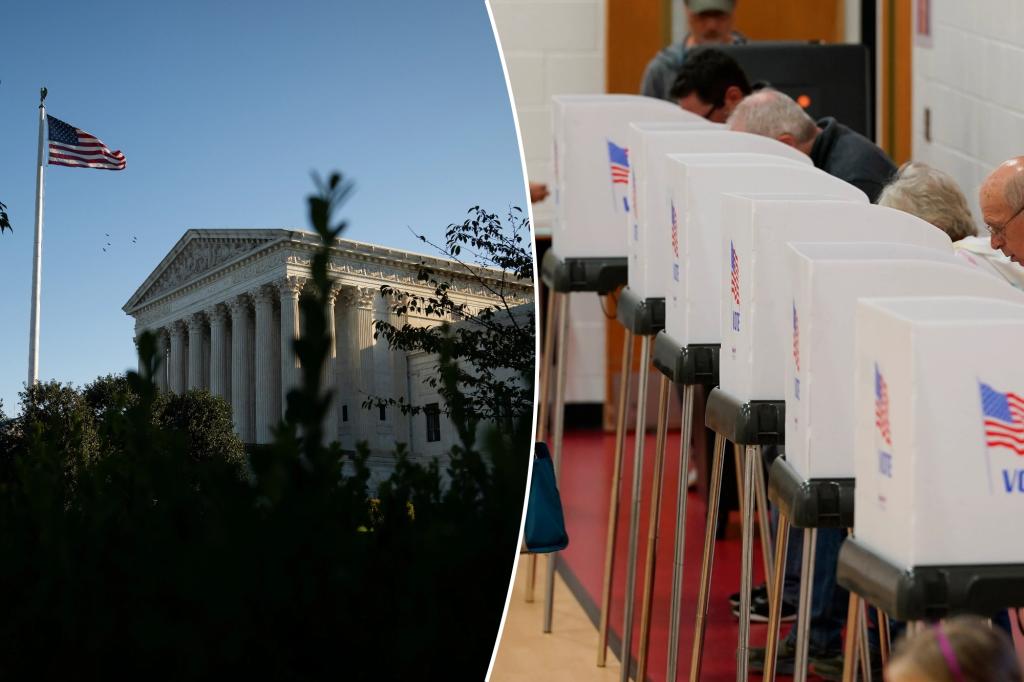A federal appeals court ruled Monday that private entities cannot bring suit under a key provision of the Voting Rights Act, setting the stage for a battle at the Supreme Court — possibly before next year’s presidential election.
Three judges on the US Eighth Circuit Court of Appeals based in St. Louis found that only the Justice Department can bring cases using Section 2 of the 1965 law, which bars voting practices or procedures that have the intent or effect of discriminating on the basis of race, color or membership in certain minority groups
For decades, ordinary citizens and civil rights groups have used Section 2 to bring allegations of discrimination by state and local election officials.
But in a 2-1 vote, the panel concluded the law does not provide for a so-called “private right of action.”
 The Voting Rights Act has featured in several redistricting court cases across the country.AP
The Voting Rights Act has featured in several redistricting court cases across the country.AP
“For the past half century, the courts have considered it [Section 2] can be enforced privately. A closer examination has revealed that this assumption rests on a weak foundation,” Circuit Judge David Stras, a Trump appointee, wrote in his majority opinion.
Stras was supported by Judge Raymond Gruender, a George W. Bush appointee, while Chief Circuit Judge Lavenski Smith, also a Bush appointee, dissented.
“Until [Supreme] Court rules or Congress amends that statute, I will follow existing precedent that allows citizens to seek judicial remedies,” Smith argued.
 The Supreme Court recently upheld Section 2 of the Voting Rights Act. Graeme Sloan/Sipa USA
The Supreme Court recently upheld Section 2 of the Voting Rights Act. Graeme Sloan/Sipa USA
“The right so fundamental to self-government and citizenship should not depend solely on the discretion or availability of government agents.”
At issue is a case brought by the Arkansas chapter of the NAACP and the Arkansas Public Policy Panel challenging the state’s legislative districts, arguing that the map dilutes the power of Arkansas’ black voters.
In February 2022, US District Judge Lee Rudofsky, a Trump appointee, ruled that only the federal government could bring such a case and a split ruling on Monday upheld that decision.
Any appeal can be heard first by the Eighth Circuit before heading to the Supreme Court.
Earlier this year, the high court sided with a coalition of civil rights groups and individual voters from Alabama who used Section 2 to challenge the state’s congressional map, leading to the creation of additional majority-black districts.
Categories: Trending
Source: thtrangdai.edu.vn/en/



